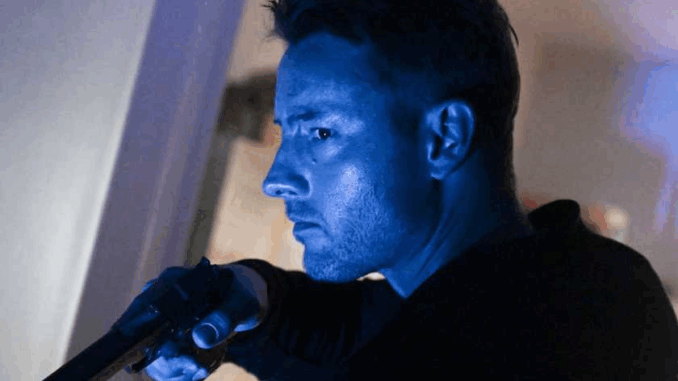
A Deeper Look Into Trauma, Isolation, and Survival
Since Tracker first premiered, Colter Shaw has captured viewers with his mix of rugged intelligence and emotional distance. But fans have always sensed that beneath his stoic façade lies a turbulent past—a childhood shaped by survivalism, psychological tension, and family secrets. In Season 3, CBS is finally pulling back the curtain.
According to showrunner Elwood Reid, this season will place Colter’s origins at the emotional center of the story. “This isn’t just a procedural anymore,” Reid said in a recent interview. “We’re going into why Colter is the way he is. Why he doesn’t trust. Why he’s so driven to save others but doesn’t know how to save himself.”
The season will feature multiple flashback episodes that chronicle Colter’s childhood on the remote Shaw family compound in Northern California—run by his father Ashton Shaw, a brilliant but deeply paranoid academic. Ashton’s obsession with self-reliance and distrust of institutions created a tense and often dangerous environment for Colter and his siblings.
Casting a Younger Colter
To bring this arc to life, Tracker has cast 12-year-old actor Leo Bannon (known for his role in Yellowjackets) as Young Colter. The young performer will appear in at least four episodes throughout the season. Bannon is expected to show the early moments of disillusionment, rebellion, and loyalty that defined Colter’s psychological makeup.
Viewers will see a boy caught between fear and love—devoted to his family, especially his older brother Russell, but increasingly aware of the toxicity of his father’s worldview. His mother, Mary Shaw (Wendy Crewson), once portrayed as the passive victim of Ashton’s delusions, may in fact be far more complicit than previously imagined.
The Role of Family in Season 3

The flashbacks aren’t just there for exposition. According to Reid, they are “mirroring” present-day developments. As Colter investigates new cases across the country in Season 3, echoes of his childhood trauma will bleed into the choices he makes.
In one particularly emotional episode titled “Wolves in Winter,” Colter takes on a case involving a survivalist community in Oregon. As he questions the leader of the group, memories of Ashton resurface. The line between past and present blurs, and Colter finds himself questioning whether he is any different from the people he once fled.
The writers have also promised greater involvement from Colter’s siblings. Jensen Ackles returns as Russell Shaw, who will clash with Colter over their memories of the past. And Melissa Roxburgh is rumored to reprise her role as Dory Shaw in a mid-season arc that could shift long-held assumptions about the family’s history.
What Happened to Ashton Shaw?
The mystery of Ashton Shaw’s death has loomed over Tracker since Season 1. We know that he died under suspicious circumstances, possibly by suicide—or perhaps something more sinister. Season 2 ended with Colter discovering hidden journals that hinted at a broader conspiracy and suggested Mary Shaw might have played a darker role than he ever suspected.
In Season 3, Colter is expected to reopen the investigation into his father’s death—not just through flashbacks, but by tracking down former students and allies of Ashton who have gone underground. One key character will be Dr. Leland Gross, a retired psychologist who once worked with Ashton and now lives in seclusion. Gross may hold the final pieces of a puzzle Colter has been avoiding for years.
This storyline not only raises questions about culpability and betrayal, but also about the legacy of trauma passed down through generations. Colter’s attempts to uncover the truth may come at the cost of his already-fractured relationship with his mother—and perhaps even his own identity.
A Season About Identity and Healing
For fans of Tracker, this shift toward introspection and serialized narrative marks a major evolution in the show’s tone. While Colter will still be solving weekly cases across the country, the emotional engine of the season will be his journey toward self-understanding.
“Colter has always helped other people find their missing loved ones,” said Reid. “Now, it’s his turn to go looking—for the child he used to be, and the truth he never dared face.”
This thematic focus is reinforced through the show’s visual language. Directors have begun incorporating subtle changes: flashbacks with colder lighting and handheld cameras, present-day scenes that echo locations from Colter’s youth. These artistic choices reinforce how Colter’s internal world is coming apart—and slowly being stitched back together.
With this season’s emphasis on backstory, psychology, and family legacy, Tracker is positioning itself as more than just a crime procedural. It’s a character study—one rooted in trauma, redemption, and the difficult work of healing.
Colter Shaw is no longer just a man on the move. He’s a man turning back toward his past, whether he wants to or not. As CBS sets the stage for what may be the show’s most emotionally potent season yet, audiences are in for an experience that’s both harrowing and deeply human.
